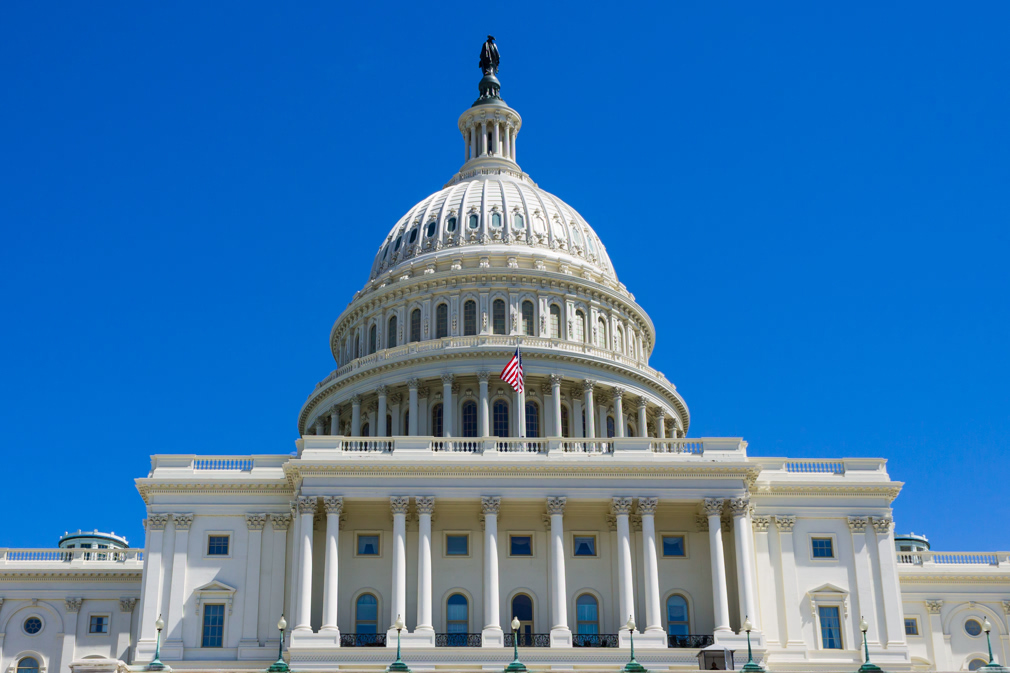The Senate passed a $2 trillion federal rescue package that’s expected to be approved quickly by the House of Representatives after Republicans agreed to oversight measures including a ban on President Donald Trump or his family receiving funds.
The largest-ever stimulus bill in U.S. history includes $250 billion in direct checks to Americans and boosts unemployment benefits to help people pay their bills, including rent or mortgages, while the nation struggles with the COVID-19 pandemic. Almost half of all Americans live in states that have implemented stay-at-home orders in frantic efforts to stem the spread of the disease.
The legislation, passed with a unanimous vote just before midnight on Wednesday, also includes $100 billion in grants for hospitals dealing with shortages of protective equipment as they care for a deluge of people sickened by the highly contagious COVID-19. It also provides $16 billion to stockpile medical equipment and $150 billion in aid to state and local governments coping with the outbreak.
There’s also $350 billion in loans for smaller businesses, aimed at keeping workers on the payrolls. The disbursement of those funds will be overseen by the Small Business Administration.
The biggest sticking point during the negotiations was the $500 billion in aid Republicans sought for major industries such as travel and hospitality that are reeling as the nation shuts down to slow the rate of infection and keep victims from overwhelming hospitals.
As originally proposed by Senate Majority Leader Mitch McConnell (R-KY), the fund would have been solely administered by Treasury Secretary Steve Mnuchin, who wouldn’t have to reveal which businesses received the money for six months.
When asked at a White House press conference about the lack of oversight, Trump told reporters on Monday, “I will be the oversight.”
Trump still wholly owns his businesses via dozens of trusts he controls, although day-to-day operations are being overseen by his sons. Currently, six of Trump’s top seven revenue-producing clubs and hotels are shut down because of restrictions meant to slow the spread of the coronavirus.
House Speaker Nancy Pelosi (D-CA) earlier in the week called the lack of oversight a “poison pill” and said she would introduce her own stimulus bill when the president’s allies in the Senate refused to remove it.
After terms of the new deal were unveiled on Wednesday morning, Pelosi said the House would drop its measure and instead pass the Senate’s bill. House Minority Leader Kevin McCarthy (R-CA) said Wednesday that Congress should move quickly to approve the bill. A vote in the House is scheduled for Friday.
In the final version, the bill’s $500 billion corporate assistance program for distressed industries includes a Senate-confirmed inspector general as well as a five-member oversight committee, similar to the protections created for the Troubled Asset Relief Program during the 2008 financial crisis.
It also mandates that any companies receiving funds must stop stock buyback for the duration of their government assistance and for a year after. When companies use cash to buy their own stock it boosts share prices but drains funds they could use to invest in their businesses, including paying higher wages.
The measure also contains a ban on payouts to businesses owned or controlled by lawmakers, Cabinet members, and Trump or his family, including in-laws such as Jared Kushner, a White House senior advisor and businessman married to the president’s daughter, Ivanka.
“We wrote a provision, not just the president, but any major figure in government, Cabinet, Senate, congressmen – if they have majority control, they can’t get grants or loans, and that makes sense,” Senate Minority Leader Charles Schumer (D-NY) told CNN.
(Updates story to reflect Senate vote.)







